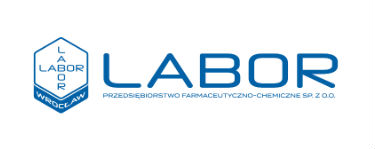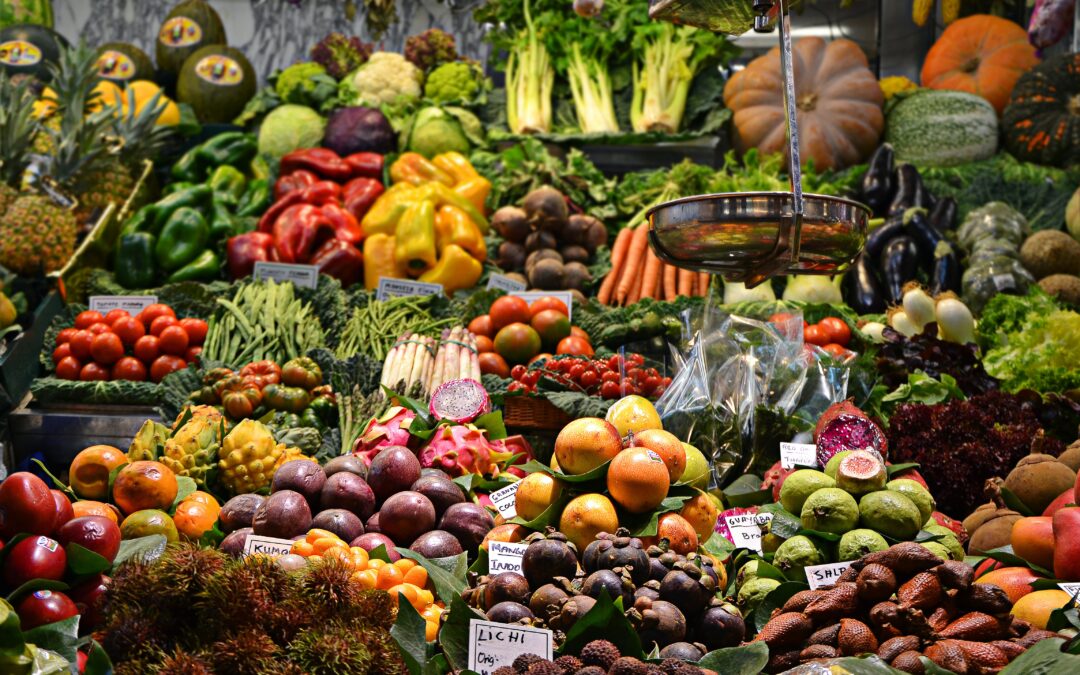Summary
Vitamins are organic compounds, the presence of which in the body is essential for the proper course of many metabolic processes. For humans, these are exogenous compounds and must be supplied with food. A normal, well-balanced diet should provide a sufficient amount of essential vitamins, but for people who eat irrationally, avoid eating vegetables and fruits, consuming highly processed foods, excessive amounts of carbohydrates and saturated fats, as well as smokers and abusing alcohol, their supply in food may be insufficient. Vitamin deficiency or lack thereof can have multiple, sometimes very serious health effects. For example, vitamin D3 deficiency can lead to calcium disorders resulting in rickets, vitamin B1 deficiency causes Beri Beri disease, lack of vitamin B12 causes anemia. Lack of vitamin C causes scurvy, which was the cause of death of many sailors until the 19th century, and the lack of folic acid results in impaired fetal development and miscarriages. For this reason, in many cases, vitamin supplementation should be used, supplementing their deficiencies in the body and preventing complications caused by them.
Vitamins are among the nutrients without which the human body cannot function properly and which, with some exceptions ,it cannot synthesize itself. Vitamins affect the development, health and efficiency of the body. They must be supplied to the body with a daily diet.
With too little intake of vitamins, disturbances in the functioning of the body called hypovitaminosis may appear, while the syndrome caused by deep and long-term vitamin deficiency is avitaminosis. The excess of vitamins introduced into the body, called hypervitaminosis, may cause undesirable health effects as a result of the toxic effect of overdosage of a certain vitamin and may contribute to the occurrence of specific health disorders. This is especially true of fat-soluble vitamins that easily accumulate in the body. The excess of water-soluble vitamins is relatively easily excreted in the urine.
The action of vitamins in the body is very complex. It is often difficult to separate the action of one vitamin from the action of the other because of the interdependencies between among them.
The need for vitamins should be covered by the daily diet, but poor eating habits (for example, avoiding eating vegetables and fruits, eating highly processed foods), a high-calorie diet rich in carbohydrates and fats, as well as preservatives contained in food limit their supply and reduce absorption. Moreover, the content of vitamins in commercially produced food products or in plants grown in accelerated vegetation cycles, using a large amount of synthetic fertilizers and plant protection products, is limited. Alcohol abuse and smoking significantly increase the need for vitamins.
For these reasons, many people require their supplementation. Very good preparations are, for example:
? Calcineff D3 K2, containing 600 mg of calcium and 1000 IU of vitamin D3 with the addition of vitamin K2 MK-7,
? Vitamin C Labor 1000 mg Natural, containing 1000 mg natural vitamin C from rosehip extract (Rosa canina).
WITAMUSKI – lozenges, slightly effervescent in the mouth, are especially recommended for children. They contain many vitamins and minerals necessary for the proper development of a child, including vitamins A, C, B1, B2, B6, B12, D, E, pantothenic acid, niacin and biotin, as well as calcium that helps in the proper functioning of muscles, in maintaining proper neurotransmission and in the proper functioning of digestive enzymes.

Fat-soluble vitamins
Vitamin A
There are many chemical compounds under the name vitamin A that show the biological activity of this vitamin. These include retinol and its derivatives as well as ß-carotene and some other carotenoids.
Vitamin A sources
The source of vitamin A are products of animal and plant origin. Vitamin A is present in foods of animal origin in the form of retinol and its derivatives. The most abundant sources of it are offal, fish (especially those with a high fat content), eggs. Provitamin A is present in plant products. These are carotenoids, the most important of which is ?-carotene. The most carotenoids are found in carrots, pumpkins, red peppers, lettuce, and in fruit – plums, cherries, apricots and peaches.
The most important sources of vitamin A in the daily diet are: vegetables, meat and its products, fats, milk and its products.
Role in the body
Vitamin A is essential in the process of vision, participates in the proper course of growth processes, promotes the regenerative capacity of cells, has a protective effect on the epithelium of the skin and mucous membranes, takes part in the synthesis of proteins and lipid metabolism, and protects against free radicals.
Vitamin A deficiency
The effects of vitamin A deficiency are night blindness, excessive dryness of the cornea, leading to blindness in case of severe deficiencies, growth disorders, keratosis and peeling of the epidermis, frequent infections.
Vitamin A supplementation
In groups of patients with insufficient supply, supplementation gives positive health effects in the form of improved vision (especially at low light intensity), improvement of growth processes, improvement of skin condition and reduction of the frequency of infections.
Vitamin D
It is synthesized in the skin from a cholesterol derivative, which, under the influence of UV rays, is transformed into provitamin and then into vitamin D. In our latitude, with prolonged sun deficiency and air pollution, its synthesis is insufficient and it is necessary to supplement its food supply with supplements or in some cases with drugs.
Vitamin D sources
The basic sources of vitamin D in our diet are: whole milk, egg yolk, butter, margarine (often additionally enriched with this vitamin), animal fats (especially fish oil!), and liver.
The role of vitamin D
It enhances the absorption in the intestine of ions: calcium, phosphorus and potassium. It conditions the proper growth and mineralization of bones and teeth (regulates the deposition of calcium and phosphorus in bones). It also affects the proper functioning of the immune, cardiovascular and nervous systems.
Vitamin D deficiency
The primary symptom of severe vitamin D deficiency is rickets.
In addition, the following symptoms may occur: fractures, bone degeneration, osteoporosis, disturbances in the functioning of the nervous system, skin inflammation, decreased immunity, tooth loss, autoimmune diseases, some neoplasms, accelerated aging process.
Vitamin D supplementation normalizes the body’s calcium balance, has a positive effect on the functioning of the nervous and immune systems.
The meta-analysis published by the British Medical Journal shows that the proper level of this vitamin achieved by supplementation may protect against colds and flu [1].

Vitamin E
Vitamin E is a mixture of three tocopherols. It is resistant to external factors. The excess of fatty food increases the need for this vitamin.
Sources of vitamin E are: milk, eggs, butter, vegetable oils (cold-pressed contain more of it than industrially produced), liver, fish (especially high-fat), wheat germ, wholemeal bread, nuts, green leafy vegetables.
The role of vitamin E.
It conditions the proper structure and protects biological membranes. It enables the synthesis of some lipids, is an antioxidant for unsaturated fatty acids and vitamin A. It affects the metabolism of muscles. It prevents cardiovascular diseases, affects blood clotting.
Vitamin E deficiency
It causes fertility disorders and miscarriages, muscle disorders, rapid catabolism of red blood cells, accelerated catabolism of unsaturated fatty acids, growth disorders, nerve damage, decreased skin tone and its discoloration (age spots), fatigue, general weakness.
Vitamin E supplementation
Vitamin E has a positive effect on the course of reproductive processes. In the body, it acts primarily as an antioxidant. It prevents the accumulation of peroxides and free radicals. It prevents damage of blood vessels. It protects the body against the risk of developing degenerative metabolic diseases. Moreover, it delays the aging processes.
Vitamin K
It is produced by intestinal bacteria. Bile increases its digestibility. The demand for it increases in patients using antibiotics and painkillers.
Sources of vitamin K are liver, soybean oil, green leafy vegetables, legumes, tomatoes, and strawberries.
Role in the body
It is necessary for the proper course of blood clotting processes. Participates in the metabolism of the skeletal system.
Vitamin K deficiency results in blood coagulation disorders, bleeding, and intestinal disorders. Its supplementation has a positive effect on these processes.

Water soluble vitamins
Vitamin B1 (thiamin, aneurin)
It is produced by intestinal bacteria. Excessive alcohol consumption, smoking, excess sugars in the diet and stress increase the need for thiamine.
Sources of vitamin B1 are pork, liver, yeast, whole grains, oatmeal, nuts, vegetables, beans, leafy vegetables.
Role in the body
It takes part in cellular respiration, affects the metabolism of carbohydrates, fats and amino acids. It conditions the proper functioning of the nervous system, digestive tract and cardiovascular system. It helps in concentration and the learning process.
Vitamin B1 deficiency
Lack of vitamin B1 in food was the cause of Beri Beri’s disease, that is the extreme form of avitaminosis, which in earlier times led most often to death. Beri Beri disrupts the work of the nervous system, cardiovascular system and the immune system. It causes tremors, muscle weakness and atrophy, palpitations, memory impairment and digestive system ailments, loss of appetite, and disturbances in the nervous, circulatory and muscular systems.
Vitamin B1 supplementation helps in preventing the deterioration of mental functions and nervous dysfunction, but also has repair properties in the case of disorders resulting from abnormal levels of acetylcholine.
Vitamin B2 (riboflavin)
Sources of vitamin B2 include liver, dairy, fish, eggs, meat, yeast, whole grains, leafy vegetables.
The role of vitamin B2
It stimulates the growth and overall immunity of the body, it is involved in cellular respiration. It affects the metabolism of carbohydrates, amino acids and fats. It is essential in the synthesis of hemoglobin. Supports skin regeneration.
Vitamin B2 supplementation
It supports the production of red blood cells, the synthesis of antibodies and the functioning of the immune system, as well as the regulation of respiration and the growth process.
It helps to maintain the proper functioning of the eye, mucous membranes of the respiratory tract, epithelium of blood vessels and skin, mucosa of the digestive tract and participates in the transformation of amino acids and lipids.
Vitamin B3 (vitamin PP, niacin, nicotinamide)
It is synthesized by intestinal bacteria. The excess of sugar consumed causes its disappearance.
Sources of vitamin B3 are milk, cheese, eggs, meat, liver, fish, yeast, whole grains, nuts, vegetables, leafy vegetables, beer.
Role in the body
Participates in the process of cellular respiration. It maintains the skin and gastrointestinal epithelium and the nervous system in proper condition. It lowers blood cholesterol, dilates blood vessels, is involved in the metabolism of carbohydrates, fats and proteins.
Vitamin B3 deficiency causes redness, cracking, peeling and inflammation of the skin (pellagra), diarrhea, general fatigue, depression, dementia, and in extreme cases paralysis of the limbs.
Vitamin B3 supplementation has a positive effect on the work of the brain and nervous system, improves the condition of the skin and mucous membranes, and helps convert food into energy.

Vitamin B7 (vitamin H, biotin)
It is synthesized by intestinal bacteria.
Sources of vitamin B7 are egg yolk, liver, yeast, bran, soybeans, peas, tomatoes, and chocolate.
Role in the body
Participates in gluconeogenesis and the synthesis of fatty acids, glycogen, hormones and cholesterol. It improves the condition of hair, bones and skin, preventing seborrhea.
Vitamin B7 deficiency causes skin changes such as erythema, peeling of the skin, alopecia, increased activity of the sebaceous glands, and split nails. There may also be elevated blood cholesterol and muscle pain.
Supplementation with vitamin B7 strengthens brittle nails, and is also effective in cases of trachyonychia or deformation of the nail plates caused by their habitual damage. There is no reliable data proving its effect on healthy, unchanged nails. In turn, biotin was effective in patients with hair disorders, but only in those with congenital or acquired hair deficiency. [2]
Vitamin B9 (folic acid, folate)
It is synthesized by intestinal bacteria. It occurs almost exclusively in combination with vitamin B12.
Sources of vitamin B9 are green leafy vegetables (e.g. Brussels sprouts, spinach), carrots, pumpkin, apricots, orange juice, as well as milk, egg yolk, liver and yeast.
Role in the body
It participates in the transfer and metabolism of a one-carbon residue and in the synthesis of choline, purines and some amino acids. It is essential in the process hematopoiesis in the bone marrow and the production of endorphins. Responsible for the proper development of the nervous system of the developing fetus. It conditions the effective work of the immune system.
Vitamin B9 deficiency is the cause of anemia along with glossitis, damage to the gastrointestinal tract, digestive disorders (difficult absorption of food, diarrhea), abnormal development of the placenta and birth defects of the fetus, miscarriages, increased risk of cardiovascular disease.
Vitamin B9 supplementation
Adequate intake of folic acid guarantees the prevention of neural tube defects. These are congenital and very serious disorders of the baby’s nervous system, developed during embryos. These defects appear as anencephaly, small brain, spina bifida, or nervous system hernias. So they lead to disability, incl. leg paralysis, bladder and rectal dysfunction, epilepsy, mental retardation, hydrocephalus, and in extreme cases may be the cause of death [3].
Vitamin B12 (cyanocobalamin)
It is synthesized by intestinal bacteria and secreted by the gastric mucosa. It is hardly found in plants.
The sources of vitamin B12 are milk, egg yolk, meat, liver and other offal, fish, oysters.
Role in the body
Vitamin B12 is essential in the process of blood formation. It takes part in the oxidation of organic acids in the cell. It is essential in the synthesis of nucleic acids, carbohydrates, and some proteins and lipids.
Vitamin B12 deficiency leads to pernicious anemia and permanent damage to the nervous system.
Vitamin B12 supplementation Vitamin B12 in the form of supplements should be used by vegetarians and vegans due to its very limited presence in plant foods.

Vitamin C (ascorbic acid)
It is very unstable and decomposes easily under the influence of oxygen and high temperature. Smokers are particularly often affected by its deficiency.
Vitamin C sources
Vitamin C is almost ubiquitous in our daily diet. Its main sources are plant foods, especially leafy vegetables, parsley, cabbage, tomatoes, citrus, kiwi, black currant, strawberries, and potatoes.
Role in the body
It is an antioxidant, facilitates iron absorption, and influences the synthesis of corticosteroids and some neurotransmitters. It maintains the proper condition of the connective tissue, strengthens the gums and teeth, and helps fight tooth decay. It is an essential factor in the synthesis of collagen. It strengthens the body’s resistance to infections. Facilitates wound healing.
Vitamin C deficiency
The basic disease caused by a lack of vitamin C in the body is scurvy, which is manifested by bleeding and ulceration of the gums, resulting in tooth loss. Scurvy was the subject of the first clinical trial in the history of medicine. Other ailments related to ascorbic acid deficiency include fragility and cracking of blood vessels, weakened immune system, swollen and painful joints, abnormal bone fusion, and impaired wound healing.
Vitamin C supplementation
The indications for supplementation are the cases of detecting a secondary deficiency associated with reduced consumption or reduced absorption. On the other hand, the indications related to the increased need are controversial. Several authors have investigated the role of vitamin C as an adjuvant in the treatment of diseases that can affect children and adolescents. These diseases affect all organs and systems – vitamin C supplementation may play a role, in particular, in respiratory, neurological, psychiatric, oncohematological, nephrological, ophthalmological and nutritional disorders.
In the pediatric age, significant benefits of vitamin C supplementation have been observed in the pathology of depression, iron deficiency anemia, and chronic renal failure associated with hemodialysis. With vitamin C supplementation, there was no evidence of an effect on mortality, cognition, quality of life, eye disease, infection, cardiovascular disease, and tumors. This may be related to the fact that in developed countries, vitamin C is almost ubiquitous in the daily diet of everyone. [4]
Bibliography:
1. Martineau A. and all. BMJ 2017;356:i6583Vitamin D supplementation to prevent acute respiratory tract infections: systematic review and meta-analysis of individual participant data
2. https://www.dermatologia-praktyczna.pl/a4653/Czy-warto-suplementowac-biotyne-.html/m288
3. https://ncez.pl/ciaza-i-macierzynstwo/plodnosc-i-ciaza/suplementacja-kwasem-foliowym-w-ciazy-i-okresie-jej-planowania
4. Pecoraroc L and all. Int J Food Sci Nutr; m2019 Jun;70(4):513-517. Vitamin C: should daily administration keep the paediatrician away?




